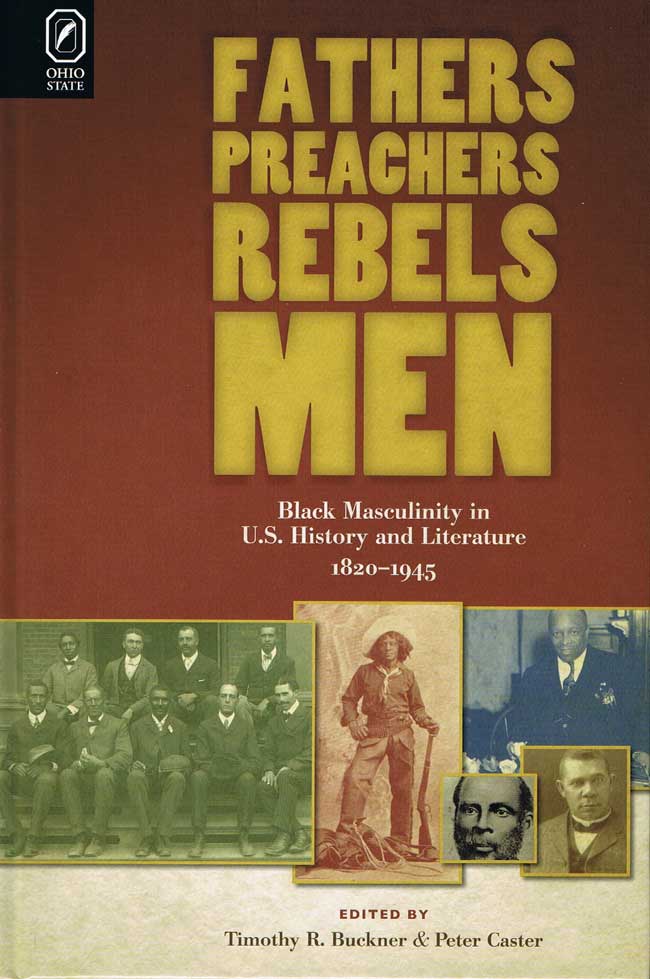Fathers, Preachers, Rebels, MenBlack Masculinity in U.S. History and Literature, 1820–1945Edited by Timothy R. Buckner and Peter CasterBlack Performance and Cultural Criticism |
 5/25/2011 Literary Criticism/American/African-American; Social Science/African-American Studies 272 pp. 6x9  $32.95 paper 978-0-8142-5227-7 Add paper to shopping cart Shopping Cart Instructions Review/Change Shopping Cart & Check-out | |||
|
Table of Contents
Explore More African-American Odyssey (The Library of Congress) African American History Month |
“Fathers, Preachers, Rebels, Men provides readers with a greater understanding of how blacks have attempted to construct agency in the face of historical stereotypes that perpetuated societal fear and anxiety toward black masculinity. It is an intellectually stimulating work that is an exemplar of thorough research and profound analysis.” —Timothy J. Brown, chair of the Department of Communication Studies, West Chester University of Pennsylvania “This collection successfully complicates the standard paradigm of the Nat Turner versus Uncle Tom images of nineteenth-century and early-twentieth-century black masculinity. As the essays move forward into the twentieth century, the editors present a very fresh perspective on the crisis of ‘New Negro masculinity’ and the crisis of the black family. I particularly value the skillful framing of the work as an overview of visual images, literary texts, legal cases, memoirs, and historical accounts.” —Margo Natalie Crawford, associate professor of English, Cornell University Fathers, Preachers, Rebels, Men: Black Masculinity in U.S. History and Literature, 1820–1945, edited by Timothy R. Buckner and Peter Caster, brings together scholars of history and literature focused on the lives and writing of black men during the nineteenth and twentieth centuries in the United States. The interdisciplinary study demonstrates the masculine character of cultural practices developed from slavery through segregation. Black masculinity embodies a set of contradictions, including an often mistaken threat of violence, the belief in its legitimacy, and the rhetorical union of truth and fiction surrounding slavery, segregation, resistance, and self-determination. The attention to history and literature is necessary because so many historical depictions of black men are rooted in fiction. The essays of this collection balance historical and literary accounts, and they join new descriptions of familiar figures such as Charles W. Chesnutt and W. E. B. Du Bois with the less familiar but critically important William Johnson and Nat Love. The 2008 election of Barack Obama is a tremendously significant event in the vexed matter of race in the United States. However, the racial subtext of recent radical political movements and the 2009 arrest of scholar Henry Louis Gates, Jr., demonstrate that the perceived threat posed by black masculinity to the nation’s unity and vitality remains an alarming one in the cultural imagination. Timothy R. Buckner is assistant professor of history at Troy University. Peter Caster
is associate professor of English at the University of South Carolina Upstate. | |||

